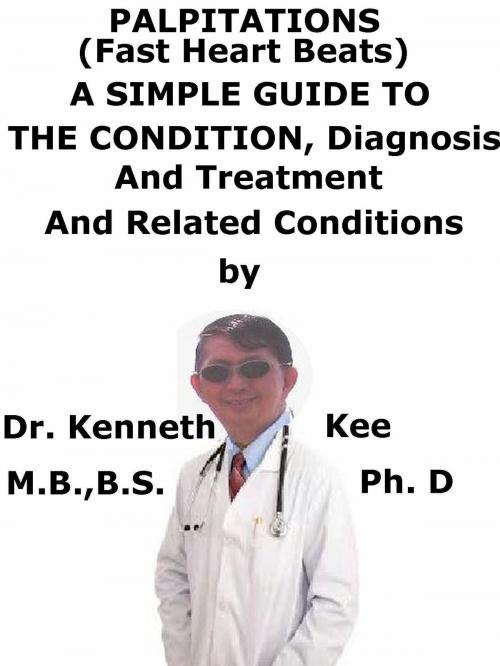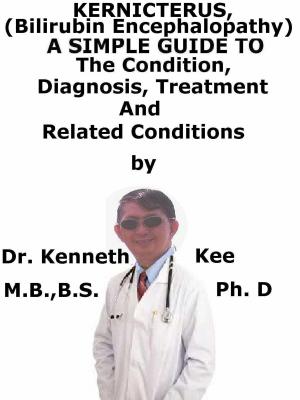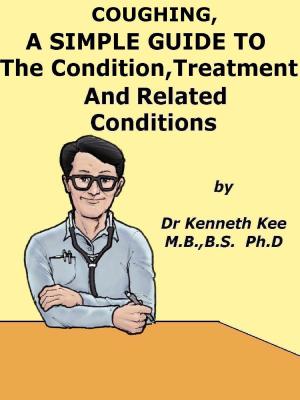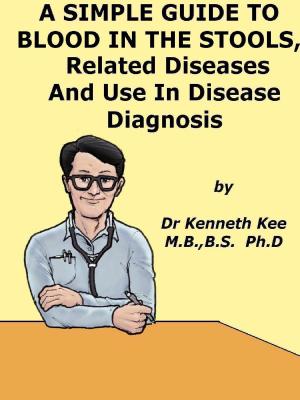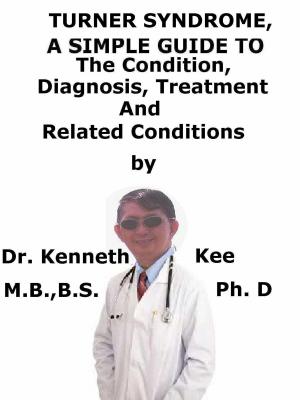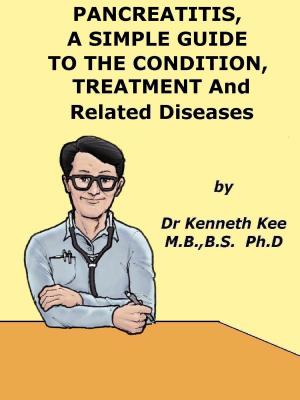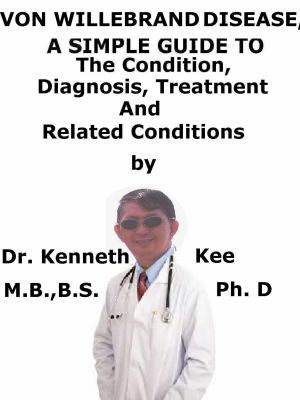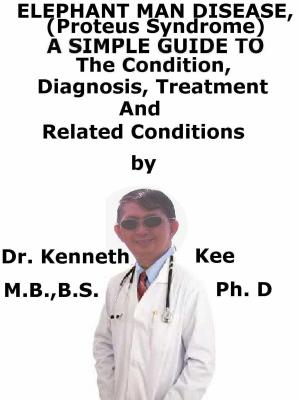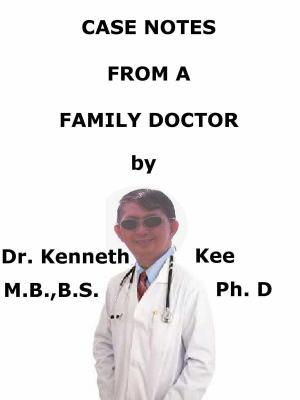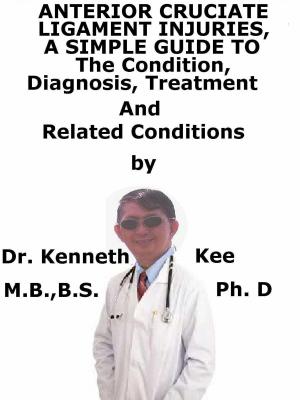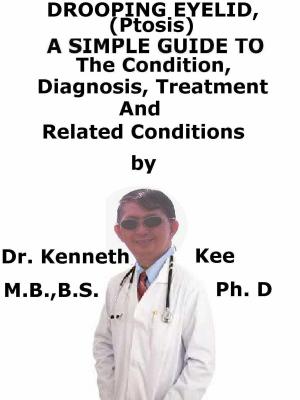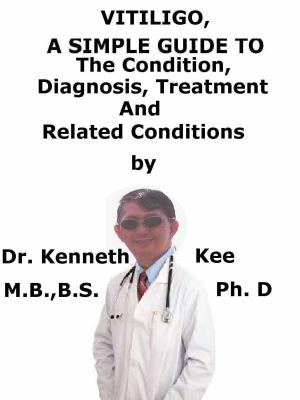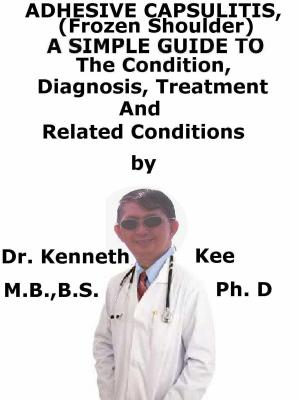Palpitations, (Fast Heart Beats), A Simple Guide To The Condition, Diagnosis, Treatment And Related Conditions
Nonfiction, Health & Well Being, Medical, Specialties, Internal Medicine, Cardiology, Health, Ailments & Diseases, Heart| Author: | Kenneth Kee | ISBN: | 9781311647757 |
| Publisher: | Kenneth Kee | Publication: | February 20, 2016 |
| Imprint: | Smashwords Edition | Language: | English |
| Author: | Kenneth Kee |
| ISBN: | 9781311647757 |
| Publisher: | Kenneth Kee |
| Publication: | February 20, 2016 |
| Imprint: | Smashwords Edition |
| Language: | English |
Palpitations are medical symptoms of feelings that the heart is beating irregularly or pounding too hard or too fast.
These sensations can also be felt in the chest, throat, or neck.
Palpitations can happen during physical activity or when the patient is lying down or sitting still.
Palpitations can happen together with other symptoms like giddiness and chest tightness.
What Causes Palpitations?
Many causes of palpitations are present.
Palpitations may happen when the heart beat is normal or somewhat faster than normal.
The palpitations symptoms may appear frightening but most are not harmful and frequently go away on their own.
Harmful palpitations are indicative of a heart problem.
The cause of palpitations is not known so the doctor may need to investigate them.
Causes not linked to Heart Problems
1. Emotional causes from a surge of epinephrine in the body
The palpitations may occur from strong emotions such as panic attacks, anxiety, or excitement.
A panic attack may produce an overwhelming sense of anxiety, fear, and apprehension, together with nausea, sweating, trembling and palpitations.
2. Strenuous Physical Activity
Intense physical exercise may cause the heart feel like it is beating too hard or too fast even though it is working normally.
Intense physical exercise also can cause some premature (extra) heartbeats.
3. Hormonal Changes
Palpitations can happen from hormonal changes that occur during pregnancy, menstruation, and around the menopausal period.
These palpitations are temporary and tend to improve or go away as these medical conditions go away or change.
The palpitations in women during pregnancy may be due to anemia.
4. Medical Conditions
Many medical disorders can induce the heart to beat faster or stronger or irregularly than usual.
Medical disorders may cause premature (extra) heartbeats.
These medical disorders are:
a. An overactive thyroid
b. A low blood sugar level
c. Anemia
d. Some types of low blood pressure
e. Fever
f. Dehydration (insufficient fluid in the body)
5. Medicines and Stimulants
Less frequently, medicines can spark off palpitations because they can induce the heart to beat faster or stronger than usual or premature (extra) heartbeats:
a. Inhaled asthma medicines
b. Medicines to treat an under active thyroid.
Too much of these medicines can result in an over active thyroid and produce palpitations.
c. Medicines to prevent arrhythmias
Medicines used to prevent irregular heart rhythms can often induce other irregular heart rhythms.
d. Over-the-counter medicines that work as stimulants also may cause palpitations.
These are decongestants (found in cough and cold medicines) and some herbal supplements.
e. Caffeine, nicotine (seen in tobacco), alcohol, and illegal drugs (such as cocaine and amphetamines) also can produce palpitations.
TABLE OF CONTENT
Introduction
Chapter 1 Palpitations
Chapter 2 Causes
Chapter 3 Symptoms
Chapter 4 Diagnosis
Chapter 5 Treatment
Chapter 6 Prognosis
Chapter 7 Atrial Fibrillation
Chapter 8 Anxiety
Epilogue
Palpitations are medical symptoms of feelings that the heart is beating irregularly or pounding too hard or too fast.
These sensations can also be felt in the chest, throat, or neck.
Palpitations can happen during physical activity or when the patient is lying down or sitting still.
Palpitations can happen together with other symptoms like giddiness and chest tightness.
What Causes Palpitations?
Many causes of palpitations are present.
Palpitations may happen when the heart beat is normal or somewhat faster than normal.
The palpitations symptoms may appear frightening but most are not harmful and frequently go away on their own.
Harmful palpitations are indicative of a heart problem.
The cause of palpitations is not known so the doctor may need to investigate them.
Causes not linked to Heart Problems
1. Emotional causes from a surge of epinephrine in the body
The palpitations may occur from strong emotions such as panic attacks, anxiety, or excitement.
A panic attack may produce an overwhelming sense of anxiety, fear, and apprehension, together with nausea, sweating, trembling and palpitations.
2. Strenuous Physical Activity
Intense physical exercise may cause the heart feel like it is beating too hard or too fast even though it is working normally.
Intense physical exercise also can cause some premature (extra) heartbeats.
3. Hormonal Changes
Palpitations can happen from hormonal changes that occur during pregnancy, menstruation, and around the menopausal period.
These palpitations are temporary and tend to improve or go away as these medical conditions go away or change.
The palpitations in women during pregnancy may be due to anemia.
4. Medical Conditions
Many medical disorders can induce the heart to beat faster or stronger or irregularly than usual.
Medical disorders may cause premature (extra) heartbeats.
These medical disorders are:
a. An overactive thyroid
b. A low blood sugar level
c. Anemia
d. Some types of low blood pressure
e. Fever
f. Dehydration (insufficient fluid in the body)
5. Medicines and Stimulants
Less frequently, medicines can spark off palpitations because they can induce the heart to beat faster or stronger than usual or premature (extra) heartbeats:
a. Inhaled asthma medicines
b. Medicines to treat an under active thyroid.
Too much of these medicines can result in an over active thyroid and produce palpitations.
c. Medicines to prevent arrhythmias
Medicines used to prevent irregular heart rhythms can often induce other irregular heart rhythms.
d. Over-the-counter medicines that work as stimulants also may cause palpitations.
These are decongestants (found in cough and cold medicines) and some herbal supplements.
e. Caffeine, nicotine (seen in tobacco), alcohol, and illegal drugs (such as cocaine and amphetamines) also can produce palpitations.
TABLE OF CONTENT
Introduction
Chapter 1 Palpitations
Chapter 2 Causes
Chapter 3 Symptoms
Chapter 4 Diagnosis
Chapter 5 Treatment
Chapter 6 Prognosis
Chapter 7 Atrial Fibrillation
Chapter 8 Anxiety
Epilogue
